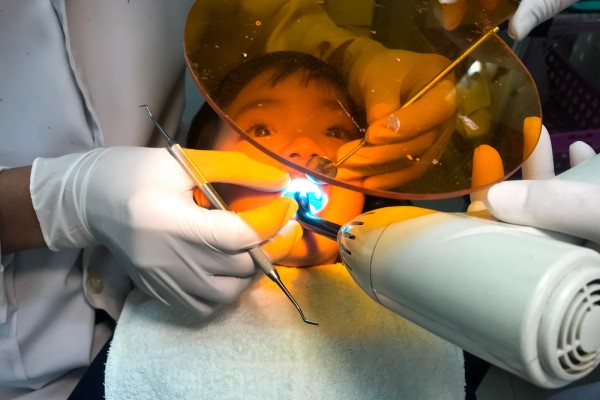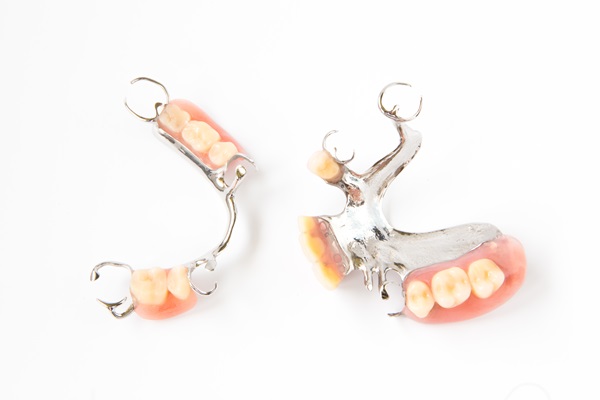How Dental Sealants Can Help a Damaged Tooth

Dental sealants are one great defense against tooth decay or cavities. Tooth decay is one of the more common problems that dentists encounter. According to the CDC, around 90% of adults over the age of 20 will experience a cavity in their lifetime, and many adults will experience more than one. Tooth decay often begins causing problems even earlier than adulthood too, as more than half of adolescents develop dental caries and require professional treatment. Getting a dental sealant can help prevent tooth decay and even stop early dental caries in its tracks.
How do dental sealants help defend against cavities?
To understand how a sealant helps protect you from tooth decay damage, you need to understand what tooth decay is and how it can lead to a hole in your tooth called a cavity.
What is tooth decay?
Tooth decay is damage that occurs to tooth enamel or the hard outer shell of natural teeth. You may hear your dentists refer to tooth decay as dental caries or cavities. The damage to your teeth takes place when decaying bacteria on the surface of a tooth mixes with the acids in the foods and drinks that you consume. When the acid and bacteria mix they react and create tiny fissures and pockets in your tooth's enamel. When left untreated, these will grow and develop into holes in your enamel that allow access to the inner dentin and sometimes even the pulp of your tooth. These holes are often commonly called cavities.
Why are cavities a problem?
Cavities are a serious dental issue because they are permanent damage to your teeth that require professional intervention before they lead to worse issues. When left untreated, cavities can allow worse infections into the inner portions of your teeth or spread to other portions of your teeth and mouth. They can even lead to jawbone infections, blood infections, gum disease, and tooth loss. Cavities also tend to be painful and can cause issues with the feeling and function of your teeth.
What are dental sealants?
A dental sealant is a thin coating that dentists apply to the occlusal surface, or top, of molar and premolar teeth. Sealants are made of plastic resin or glass ionomer materials and can easily be placed in one visit. Dentists first paint them on, then bond and harden them to your teeth. The sealants cover and protect your back teeth by creating a barrier between the top portion of your teeth and the bacteria and acids that cause tooth decay. They are generally simple to apply, immediately effective, and long-lasting. If and when they do fall off or wear away, they can also easily be replaced, thereby ensuring that your teeth remain protected.
How can dental sealants help?
Tooth decay issues are particularly prevalent in your molars and premolars, where the chewing surfaces of your teeth provide better hiding spots for plaque buildup and are harder to clean effectively by brushing and flossing. Sealants are especially effective at covering over and defending these highly susceptible areas. When combined with proper brushing, flossing, and rinsing habits, a tooth sealant can help prevent tooth decay from ever having the chance to settle and damage a tooth in the first place. Sometimes, they can even be good options to help stop early dental caries from becoming a worse issue later on.
Who should consider dental sealant treatment?
Almost every dental patient can benefit from the application of dental sealants. Many dentists particularly recommend early sealant treatment to keep cavities from ever having the chance to occur. For this reason, they are commonly placed on the molars and premolars of children and adolescents once their permanent back teeth fully come in, which is usually between the ages of 6 and 12. Other individuals who notably benefit from dental sealant treatment include patients who:
- Are on specific medications that weaken tooth enamel
- Take medicines that cause dry mouth
- Have been diagnosed with eating disorders, such as bulimia or anorexia
- Are genetically predisposed to cavity issues
- Do not have access to sufficient amounts of fluoride
- Suffer from heartburn or gastroesophageal reflux disease (GERD)
Conclusion
Provided you continue to practice good oral hygiene habits, getting a dental sealant can be a great way to keep you from developing a cavity. These slim, defensive covers for your teeth can help prevent tooth decay entirely or help protect an already damaged tooth if caught early enough. If you worry about getting dental caries, suffer from frequent tooth decay, or are concerned about your child developing cavities, dental sealants may provide the peace of mind and mouth you need.
Request an appointment here: https://sandimassedation.com or call San Dimas Family and Sedation Dentistry at (909) 305-2300 for an appointment in our San Dimas office.
Check out what others are saying about our dental services on Yelp: Dental Sealants in San Dimas, CA.
Recent Posts
Dental sealants are a great prevention tactic that many dentists recommend today. Your dentist wants your teeth to remain healthy and cavity-free for as long as possible. We all want to do whatever is necessary to maintain our natural teeth and keep our smiles bright. Our natural teeth are put through a lot if you think…
Proper hygiene techniques and regular dental checkups are a great defense against tooth decay, but what if they are not quite enough? Enter dental sealants. Getting tooth sealants can also greatly assist in the tooth decay battle. Continue reading for more insight into this treatment option and how it can be an effective tool for…
Dental sealants are commonly made of composite resin, a tooth-colored material that protects teeth from enamel damage and decay. Dental sealants can also be made of a glass ionomer or polyacid resin material. It can be helpful to discuss all of the different types of dental sealants with a dentist before choosing the most appropriate…
Dental sealants are more popular than ever, and they are an excellent method to protect tooth enamel and avoid unpleasant cavities that result in unplanned expenses. You can make an informed decision about whether or not dental sealants are suitable for you by learning the warning signs of cavities and other oral health issues.Dental sealants…


